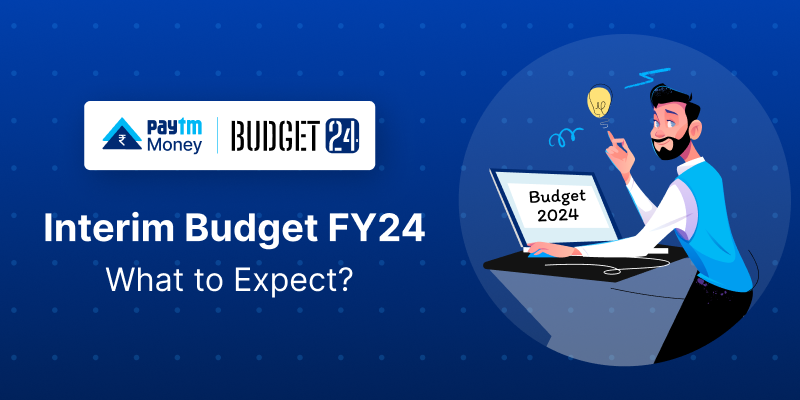Interim Budget Countdown: Sweet Relief or Bitter Brew?3 min read
As the Indian economy, currently standing at a robust $3.7 trillion, continues its transformative journey amid global challenges and domestic aspirations, the spotlight is on the upcoming Interim Budget 2024. Beyond being a set of numbers, this annual financial document serves as a roadmap outlining the government’s priorities, policies, and strategies for the fiscal year ahead. In this election year, the finance minister has indicated that the February 1, 2024, budget will be interim, tempering expectations for grand announcements.
Let us delve into the details.
1. Interim Budget vs. Annual Budget:
A full-fledged annual budget provides an in-depth plan covering income and expenditure for the entire fiscal year; an interim budget, also known as a vote on accounts, is presented during the year of Lok Sabha elections. This allows the government to reiterate its economic vision, focusing on fiscal prudence, sustaining growth, and introducing welfare measures. The full-fledged budget is expected post-government formation in June-July of this year.
2. Fiscal Deficit Management:
Fiscal deficits occur when the government’s expenditure exceeds its revenue, typically financed through borrowing. Budget 2024 is anticipated to strike a balance between fiscal prudence and stimulating economic growth. Investors look for innovative revenue-generation measures, potential tax reforms, and effective fiscal management strategies. With robust tax collection in FY24, the government has fiscal space for additional spending while meeting the fiscal deficit target of 5.9% of GDP.
3. Capital Expenditure:
The government is expected to maintain its focus on capital expenditures to stimulate growth. Following the pandemic, capital expenditure was instrumental in fostering growth. With a strong multiplier effect on growth, a 10% growth in capex to around Rs 11 trillion is anticipated, with continued emphasis on infrastructure.
4. Infrastructure Development and Connectivity:
Expectations for Budget 2024 include substantial allocations for infrastructure development, focusing on roads, railways, airports, and digital connectivity. Improved infrastructure accelerates economic growth, creates employment opportunities, and enhances the overall quality of life.
5. Stimulus for Consumption Growth:
Despite estimated GDP growth of 7.3%, consumption growth is pegged at 4.4%. This budget may introduce measures to spur consumption demand, which is crucial for economic revival, especially given the challenging external demand scenario.
6. Agriculture and Rural Development:
The budget is expected to address challenges faced by farmers by allocating provisions for agricultural infrastructure, irrigation projects, and market reforms. Increased outlays are anticipated for social welfare schemes for the poor and the agricultural sector.
7. Tax Reforms and Relief for Individuals and Businesses:
Budget 2024 is anticipated to simplify the tax structure, reduce compliance burdens, and possibly revise tax slabs. Measures to incentivize investments, support startups, and provide relief for pandemic-affected sectors are on the agenda.
8. Education and Skill Development:
Stakeholders await budgetary provisions for the education sector, encompassing primary to higher education and skill development. Expectations include bridging the digital divide, enhancing online education infrastructure, and promoting research and innovation.
9. Healthcare and Social Welfare:
Expectations for the Interim Budget 2024 include increased allocations for healthcare infrastructure, research, and development. Stakeholders hope for measures to enhance the accessibility and affordability of healthcare services, with a focus on preventive healthcare.
Conclusion:
As the countdown to Interim Budget 2024 begins, diverse expectations reflect the challenges and opportunities facing the nation. From economic recovery and tax reforms to infrastructure development, healthcare, and social welfare, the budget discussions will shape India’s narrative. It is not just an economic event; it is a pivotal moment in India’s aspirations for a brighter and more prosperous future.
Disclaimer: Investments in the securities market are subject to market risks; read all the related documents carefully before investing. This content is purely for informational purposes only and in no way to be considered as an advice or recommendation. Paytm Money Ltd SEBI Reg No. Broking – INZ000240532. NSE (90165), BSE(6707) Regd Office: 136, 1st Floor, Devika Tower, Nehru Place, Delhi – 110019. For complete Terms & Conditions and Disclaimers, visit https://www.paytmmoney.com.




